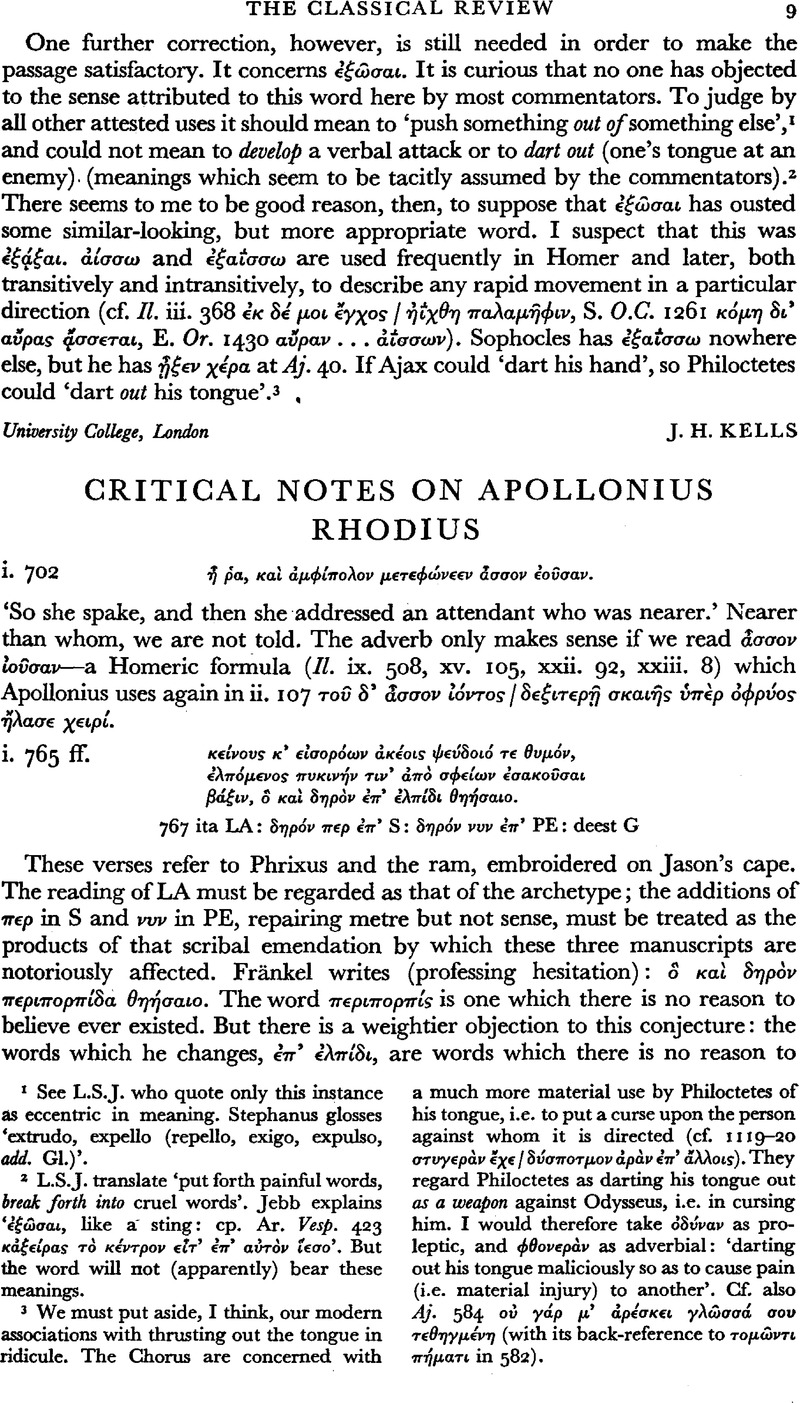No CrossRef data available.
Article contents
Critical Notes on Apollonius Rhodius
Published online by Cambridge University Press: 27 February 2009
Abstract

- Type
- Review Article
- Information
- Copyright
- Copyright © The Classical Association 1963
References
1 See L.S.J. who quote only this instance as eccentric in meaning. Stephanus glosses ‘extrudo, expello (repello, exigo, expulso, add. Gl.)’.
2 L.S.J. translate ‘put forth painful words, break forth into cruel words’. Jebb explains ‘⋯ξ⋯σαι, like a sting: cp. Ar. Vesp. 423 κ⋯ξε⋯ρας τ⋯ κ⋯ντρον εἶτ' ⋯π' αττ⋯ ⋯εσο’ But the word will not (apparently) bear these meanings.
3 We must put aside, I think, our modern associations with thrusting out the tongue in ridicule. The Chorus are concerned with a much more material use by Philoctetes of his tongue, i.e. to put a curse upon the person against whom it is directed (cf. 1119–20 στυγερ⋯ν ἔχε / δ⋯σποτμον ⋯ρ⋯ν ⋯π' ἄλλοις). They regard Philoctetes as darting his tongue out as a weapon against Odysseus, i.e. in cursing him. I would therefore take ⋯δ⋯ναν as pro-leptic, and φθονερ⋯ as adverbial: ‘darting out his tongue maliciously so as to cause pain i.e. material injury) to another’. Cf. also Aj. 584 οὐ γ⋯ρ μ' ⋯ρ⋯σκει γλ⋯σσ⋯ σου τεθηγμ⋯νε (with its back-reference to τομ⋯ντι π⋯ματι in 582).


